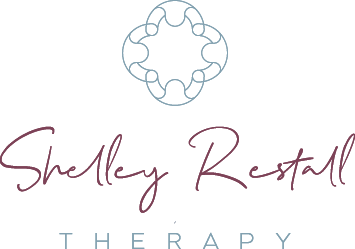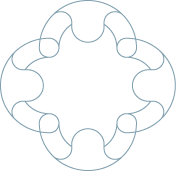A book club for Autistics interested in learning how to Unmask with neurodivergent affirming support.
“Self-identifying or being formally diagnosed as Autistic, is only a starting place to understanding yourself, living authentically, and building self-accommodations that support you living life on your terms. Unmasking is part of the journey to improving quality of life for Autistics.
We are here to support you on your journey.
~ Shelley Restall & Amanda Broderick, Co-Facilitators
Welcome to the Unmasking Autism Upcoming Book Club Group Offering.
This group is a closed group. This means that it’s asked that you commit to attending all 8 sessions to support the group forming a sense of belonging and safety to share with each other.
Given the nature of the group, an initial meet and greet brief call needs to happen before you can register for the group. Please click the link below to do that.
This Group is open to anyone age 25+
If cost is a barrier or hardship to join the gropu, please reach out to schedule a meet and greet call and notify us, so you can reister for free.
OPEN TO RESIDENTS ACROSS ONTARIO & NEW BRUNSWICK
Each Group Session Schedule of Topics
Brief Group Check In
Orientation and Overview Summary of Chapter(s) from Unmasking Autism Book for that week provided in a powerpoint format.
Group discussion/reflection on how this applies/doesn’t apply to you. Optional sharing and participation as it feels right to you.
Guided Experiential Exercise from Unmasking Autism Book individually completed.
Group discussion/reflection, sharing about the self-knowledge developed through the exercise.
Check out & Sharing Takeaways from Group Gathering
Part of learning about yourself can involve reading, sharing with peers who can relate, feeling heard and validated, and also trying out new things.
This group includes all these parts. It has a focus on guiding from a lived experience lens, from neurodivergent facilitators, who will provide each session this format:
A brief summary of information from the Unmasking Autism book written by Devon Price.
Guide participants through experiential exercises to support unmasking, developing self-knowledge, and self-acceptance.
Hold a safe space for sharing and relating to others on individual journey of learning how to unmask in their lives.
It is recommended that you read the book either before the group begins, or during the group duration.
Group Outline Session by Session to Support you in understanding what to expect when joining.
Week 1: Orienting to group, creating group sharing framework, understanding a shared definition of masking and autism.
Week 2: Who are the masked autistics? This topic will explore understanding how masking shows up in our lives. We will also be sharing special interests as well.
Week 3: The anatomy of the mask includes discussions and explorations about when, how, and ways that masking protects us. What led to us learning to mask and developing this skill will be other aspects discussed too.
Week 4: The costs of masking is the focus of discussions and exploration of how this applies to you as well.
Week 5: Rethinking Autism is a focused discussion about moving away from a medical model view of autism, and viewing it as a deficit based disorder, into more of a new way that is self-accepting oriented to understanding Autism.
Week 6: Building an autistic life is an overall topic of discussion to guide our experiential exercises, discussions of ways to support ourselves and connect with one another in shared experiences.
Week 7: Cultivating Authentic Autistic Relationships is the focus of discussions and exercises.
Week 8: Creating a neurodiverse world, sharing unmasking experiences, and sharing takeaways of the group will be the guided discussion and exercise focus.
Self-Accommodation is part of learning to unmask, live authentically, and to create space to live with more joy.
-
Use headphones for privacy or focus with reduced distraction.
Need a drink or snack?
Using a weighted blanket or blanket for warmth/comfort.
Gather fidgets that you like.
Space to wiggle or change sitting arrangement.
-
Using chat box to share ideas or ask questions.
Leave video on or off.
No expectations to make eye contact.
We can turn on live captions in zoom if preferred by group members.
Any other communication needs or accommodations, please reach out to ask! We are happy to help where we can.
-
Do you like to write down things to process? Grab a notebook and pen/pencil/markers, or a electronic format to type notes.
Sharing verbally in group. You can participate with the guided experientially exercise or at the time blocks provided in group to share reflections, observations, and thoughts about the topic talked about.
Giving yourself permission to take space to process and download the information mentally and then identify someone you can share your reflections with, or bring back to the group next meeting.
Other ideas? Please share them because this list is just a starting list, and we are always open to hearing more ideas and thoughts about what works for you. Others can benefit from ideas sharing too.
Meet Amanda Broderick, BSW Student Intern and Co-Facilitator
Meet Amanda, an autistic, disabled, white bodied female who is currently pursuing her Bachelor of Social Worker degree from Dalhousie University. She is completing a practicum placement with a clinical social work focus in Shelley Restall’s Counselling practice. Amanda is passionate about supporting late diagnosed autistic females (including self-diagnosed, exploring neurodivergence), to build a life that is based on self-knowledge, self-acceptance, creating systems of neurodivergent affirming support for daily life, and de-constructing internalized ableism that is self-limiting.







